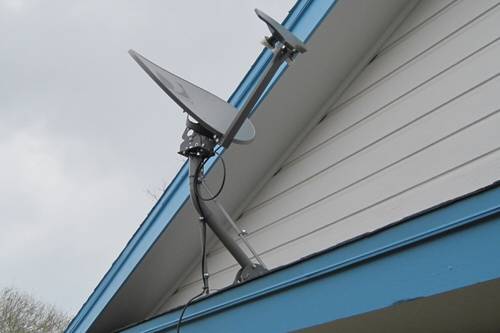
Over the weekend, AT&T struck a deal to buy DirecTV, the satellite pay-TV company, for $65 billion.
At first blush, it seems like a bet on the past: Satellite broadcasting is a one-way service in a two-way era. It’s only capable of providing what the industry calls “linear” programming—the traditional channel arrangement, broadcast according to a schedule, not according to a viewer’s whims.
Internet Killed The Satellite Star—Or Did It?
The future of video is on-demand, delivered over the Internet. The buzzword for this is “over the top”—in other words, delivered over infrastructure like a cable hookup that itself already delivers video. Most people believe that “over the top” services like Netflix and Hulu are the future of how we’ll consume video.
See also: With Time Warner, Comcast Wants Complete Control Of The Internet Pipes
But some programming is best delivered in linear fashion—particularly live sports programming, where DirecTV is particularly strong. In its announcement, AT&T highlighted DirecTV’s exclusive deal for NFL’s Sunday Ticket program, which delivers football games both via satellite and Internet.
So the best way to think about this deal is less about delivery mechanisms and more about the kind of video DirecTV offers today. AT&T can leverage those viewers and those deals with movie studios and sports leagues to power its own video efforts. (One might see AT&T drop its nascent U-Verse brand in favor of the better-known DirecTV brand.)
While consolidation’s always cause for concern, a stronger AT&T seems better poised to take on the likes of Comcast, which owns both a large cable plant—larger if it’s allowed to buy Time Warner Cable—and the NBC Universal video empire.
Photo by Gregory Strakos

















